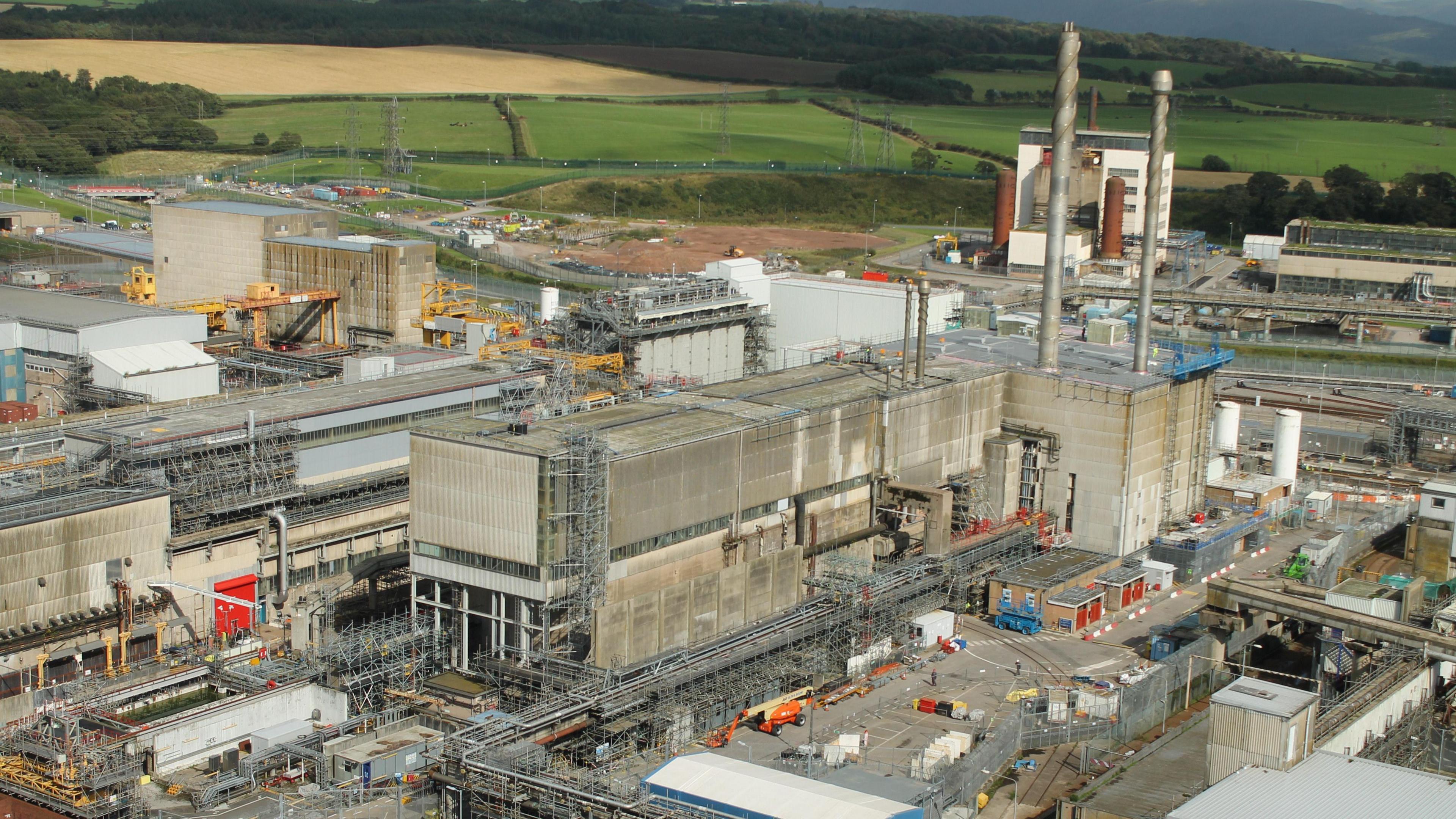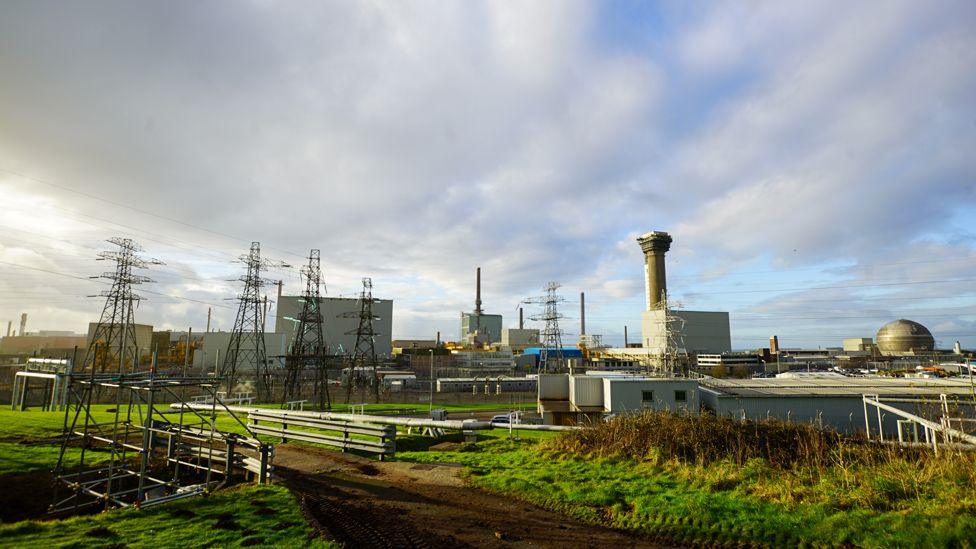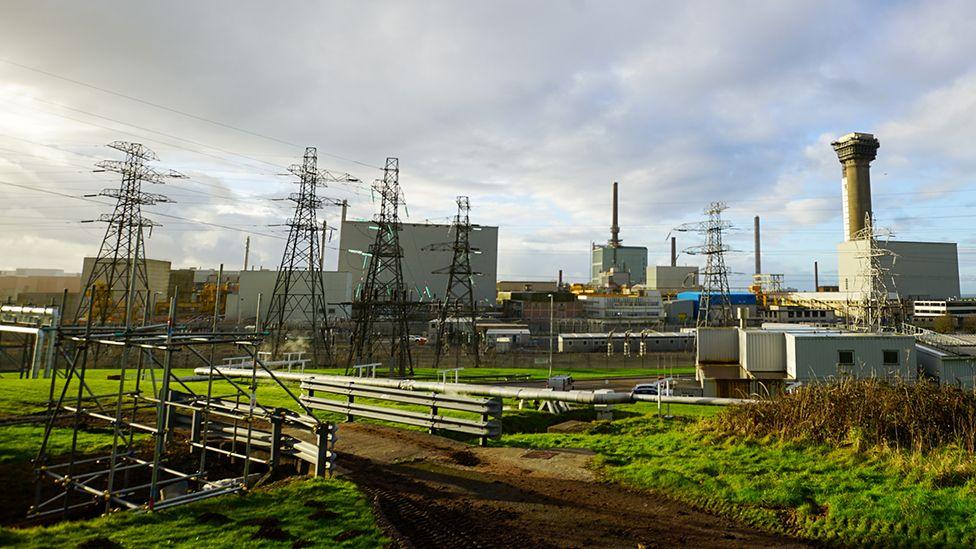Government allocates £154m for plutonium disposal

The government said immobilising the Sellafield plutonium stockpile was the safest option
- Published
More than £150m will be spent by the government to investigate how best to dispose of the 140 tonnes of radioactive plutonium it currently stores at a nuclear plant.
Sellafield in Cumbria holds the world's largest stockpile of the hazardous material.
Earlier this year, the government announced the material would not be reused and instead would be made ready for permanent disposal deep underground and put "beyond reach".
The Department for Energy Security and Net Zero (DESNZ) said the money would be used to "test and prove" two technologies currently being explored to "immobilise" the highly radioactive material.
Plutonium has been kept at Sellafield for decades and successive governments have kept it to leave open the option to recycle it into new nuclear fuel.
Storing it in its current form is expensive and difficult as it frequently needs to be repackaged because radiation damages storage containers.
In January the government said the safest, most economically viable solution was to "immobilise" its entire plutonium stockpile.
DESNZ said it would spend £154m over five years to allow the Nuclear Decommissioning Authority to build specialist lab facilities at Sellafield which would be used to test two emerging immobilisation technologies – Disposal Mox and Hot Isostatic Pressing.
Dr Lewis Blackburn from the University of Sheffield said the two methods involved converting the plutonium into a "mechanically and chemically stable ceramic material" which could then be disposed of.
Mid Copeland and South Copeland in Cumbria are the only two sites in the UK currently being considered by the government to host a nuclear waste disposal site.
It follows a possible site in Lincolnshire earmarked by the government body Nuclear Waste Services pulling out in June.
Follow BBC Cumbria on X, external, Facebook, external, Nextdoor and Instagram, external.
Get in touch
Do you have a story suggestion for BBC Cumbria?
- Published24 January

- Published9 September 2024
